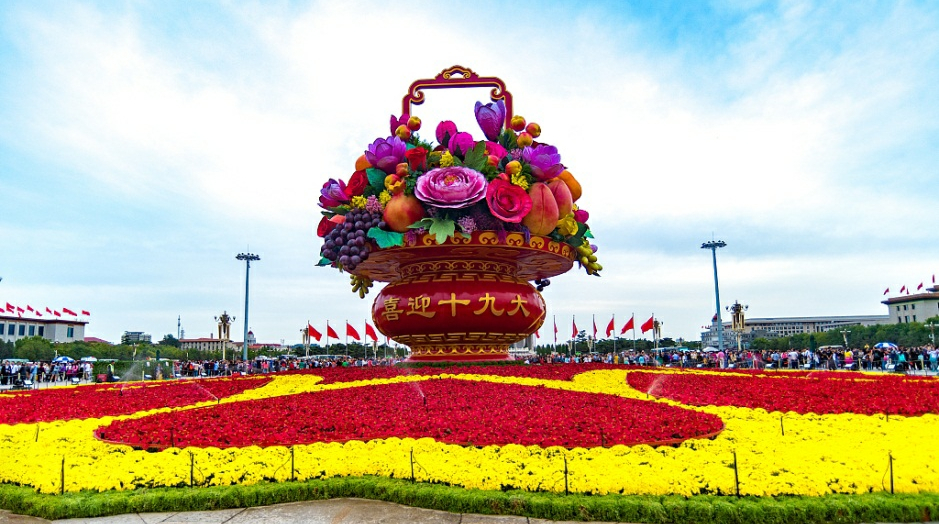
14:59, 14-Aug-2019
Full episode - How CPC sustains the world's largest ruling party

By Robert Lawrence Kuhn
Lyu Nanyi, a Party official transferred to Xundian County in southwest China's Yunnan Province in 2015, has been doing his best to tackle poverty in five rural villages in this area. He goes door to door to find out about people's lives and comes up with ideas to help them get out of poverty.
According to a Chinese saying, if you want to get rich, you must build roads first. So Lyu started by concentrating on building a road for villagers. In the past, there was only a mud road, which released dust into the air on sunny days and became muddy when it was rainy.
When villagers wanted to build houses, they did not dare to transport materials by truck because the road condition was too difficult. They had to carry everything by hand. Now that the road has been paved, it makes everything easier.
But still many residents remain poor. A local resident Teng Zhonglin lost his wife to illness years ago. Teng has to support his child, as well as his father, who suffers from mental illness. The family lives in a mud shack susceptible to rain and wind.
"I tried to help him make more money, such as finding a job in the nearby area." Lyu said, "He also receives subsidies from the government."
Lyu has also helped introduce a flower planting company to Kedu New Village, a remote rural village, employing 109 families. Residents are in charge of picking flowers, packaging and spraying pesticide, and each family can make a monthly salary of about 2,000 yuan, in addition to the money from land leased to the company.
Thanks to Lyu's efforts, the families in Kedu have changed their life and shaken off poverty.
Like Lyu, about 500,000 officials of the Communist Party of China (CPC) have been assigned to complete residencies in more than 100,000 rural villages in China to help tackle poverty. Lyu's story exemplifies the CPC's determination to win the battle against poverty and commitment to bringing all rural people out of poverty by 2020 under its all-round leadership.
Then how does the CPC's leadership on every aspect work in China for real? How does the 98-year-old Communist Party of China, as the only ruling party in China, deal its relation with the society? These answers, in a larger sense, are critical to understand how CPC sustains the world's largest ruling party.

On October 1, 2017, the flower bed in Tian'anmen Square for welcoming the 19th National Congress of the CPC./VCG Photo
On October 1, 2017, the flower bed in Tian'anmen Square for welcoming the 19th National Congress of the CPC./VCG Photo
Back in 2015, when speaking to a high-level delegation of U.S. politicians, Democrats and Republicans, Wang Qishan, China's current vice president and former Politburo Standing Committee Member, declared that one cannot understand China without understanding the CPC.
And if one does not understand the CPC, one cannot deal effectively with China. How has the CPC brought about China’s remarkable development? And what challenges does the CPC face, amidst increasing domestic complexity and international volatility?
The CPC embraces commitment to overarching meritocracy, a long and complex process to select, train and promote leaders who are highly intelligent, well educated, have wide-ranging experiences, focus on their operational numbers and performance measures, and maintain high standards of personal integrity and organizational loyalty.
Looking ahead, let no one doubt that the CPC is facing multifarious challenges. Economic reform and transformation are both vital and disorienting. Social development, such as quality healthcare, food safety and pollution control, must meet escalating expectations.
Moreover, public pressures are mounting for increasing transparency, strengthening checks-and-balances, and constructing institutions that are self-correcting.
The CPC is a "work in process" — it will always be and that is its strength. Conditions change and so must policies. The times change — especially in a dynamic, knowledge-based society — and the Party, as it looks to the future, must change in accordance.
Only by real-world grounding — monitored and modified continuously — can the CPC construct a fully modernized, socialist country.
SITEMAP
Copyright © 2018 CGTN. Beijing ICP prepared NO.16065310-3
Copyright © 2018 CGTN. Beijing ICP prepared NO.16065310-3